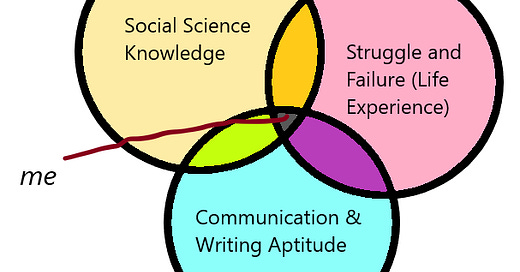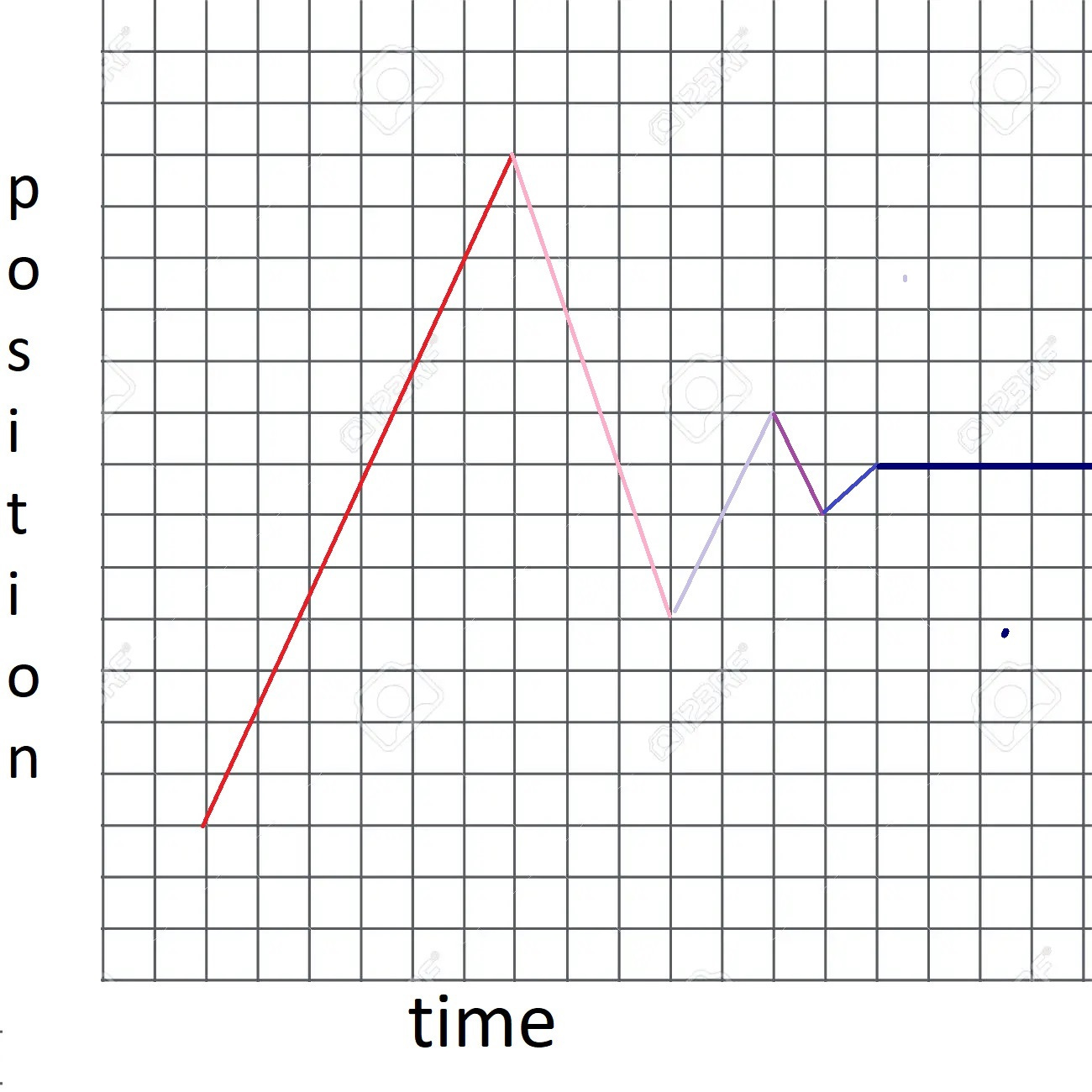Passsages like the one above (which I read in Substack this morning and which compelled this free-form writing task) worry me.
I’ve already written about the phenomenon of left-leaning people (mostly women in my experience) reacting with horror or aggression and ending long friendships over opinions which are well within the Overton window and are often subscribed to by a clear majority of our society. I’ve explained what I think is happening in those cases: in an attempt to bolster and solidify their worldview, people are assigning negative traits and dark motivations to others and they’re obeying invisible status signals, unconscious even to themselves.
Reaching out and trying to discuss issues with such people upsets them and their upset is externalized. You made them feel angry/annoyed/antagonized and so you are at fault. The details can always be confabulated: tone or motives or setting - something you did was wrong because they disliked the feeling of having their ideas questioned.
If you oppose racial preferences in affirmative action programs, for example, you’re automatically assumed to be hostile to black people, in some sense. This would indeed be a strange reality… for more black respondents supported the recent Supreme Court decision which affirms that direct racial consideration (even for diversity or equity) was unconstitutional than opposed it in recent polling. This is an emotional approach to the world and its issues. It’s a worldview based on feelings - feelings about people and groups and concepts. Asking people to leave the realm of feelings is, in many cases, practically a hostile act, even when the request is made politely or with genuine curiosity.
I usually limit myself to reminding such people: you might be wrong about all of this. Your feelings don’t validate these opinions. It’s futile though.
I get it. The world is confusing and people are emotional creatures and vilifying the ‘out group’ reinforces ideological certainty. No one is interested in the political opinions of a klansman… they don’t have to be considered and can safely be dismissed wholesale. If only everyone we disagreed with could be dispensed with in this manner, it would be much easier and more comfortable. The act of rejection also binds you to your group, or side, and the more emotional the rejection the tighter the bonds.
I’m EXTREMELY opinionated. With age I’ve learned that opinions should be saved for issues for which one is well-informed, and that it’s okay to say “I’m not sure”. I’ve learned how to listen to others (really listen) in conversations and debates, although at first I only did that in order to craft my opposing arguments more carefully. I’ve become interested in the ways which people form beliefs. It’s usually emotional and associational, with logic and evidence used very sparingly to shore up one small part or tie propositions together. Very few people use evidence and logic consistently and well in order to shape their worldview.
I try to do all of this and I’ve been politically engaged for over two decades now so I’ve moved all over the map as my experiences and education and cognitive style has changed. I was a committed pro-lifer in 9th grade. I believed (arguing from first principles) that violence against abortion doctors and clinics was justified. In high school I was fascinated with anarchism. I would often skip class to go to the public library and pore through Bakunin and Proudhon. Now I’m cautiously pro-choice and I have a conservative temperament (I think radical change and revolutions are usually bad bets) and I’m a moderate, pro-welfare libertarian. Mentally I describe myself as a communitarian federalist; if you describe yourself like that to other people they just hear ‘pretentious,’ I think.
My movement back and forth across the spectrum has given my beliefs deep roots and made me willing to discuss anything with anyone. If you avoid discussion or slip into ad hominem attacks or label entire groups of adversarial believers ‘bigots’ I don’t think you’re as certain as you pretend to be. The silencing and vilifying of opponents is a huge sign of weakness, not strength.
Veering back and forth over the same ground has allowed me to get to a finer resolution of policy detail and given me a comforting sense of flexibility.
My movement back and forth across the spectrum has also given me empathy for those who believe differently than I (for I used to be one) and, most importantly, has taught me that people are not their beliefs. There are a lot of miserable and spiteful people whose beliefs are (ostensibly) centered around tolerance and fairness and compassion… and there were brave and decent and tolerant Nazis. During the rape of Nanking one of the few individuals to hide beleaguered Chinese civilians from Imperial Japanese brutality was the Nazi consular and trade official. He is credited with most of the credit for establishing the Nanking Safety Zone, which has been credited with protecting and perhaps saving a quarter of a million people. Would any of the social justice advocates active today run that kind of risk to do the right thing? They happily support child slavery and actively disregard the pleas from residents in poorer neighborhoods, and they’re often cruel to their coworkers or friends to win status points. It makes sense that an ideology which claims to represent total ideological purification might attract the most frightened and vicious people. I just rather wish they didn’t manage our institutions as well.
The John Rabe house in Nanjing is a memorial to a man regarded as a hero in China. If you start assigning ethical value to belief systems just remember that this man, a convicted Nazi, exhibited more moral courage and did more real good than all of the ‘anti-racists’ in the U.S. combined.
Why do I write? Why do I feel that my opinions are worthy enough to post online for all to see? It’s partly because I’ve spent a long time (thousands of hours of study) consolidating my worldview. I think that I know more social science than most people out there that have both experienced deep personal growth and made spiritual progress an aim and I’ve experienced more personal growth and spiritual progress (which didn’t come easily) than most social scientists.
I don’t write to spread any specific viewpoint or ideas. I emphasize again and again that human society requires healthy communication, that fair mindedness is a rare and valuable trait, and that we are incredibly fortunate to be alive where and when we are. That’s why I send out a selection of poems about death and poverty and trench warfare from time to time. Each time I read such works I’m reminded of how much worse it could be, and therefore how good it is.
Lastly, I write because I’m worried. I’m worried about the rate of technological change and I’m worried about a society as comfortable, and yet lonely, as ours, and I’m worried that human nature (this strange and irrational palette of impulses, evolved for a much different situation than we inhabit today) will ultimately prove inadequate for our challenges. I’m worried when I see friends become unhappy and anxious and antagonistic because of differences in political opinion. I’m worried when I see a few corpulent groups, led by fools, possessed of total self-assurance and the urgency that always accompanies revolution and social collapse, and sometimes even genocide.
Millions of people worked for centuries to build this society and if we stop building it goes away, to be replaced by a much darker and smaller and emptier alternative. We should take that danger seriously and always keep our eyes trained upon it.
Just because ideas have become unpopular within global elite circles doesn’t mean they’re incorrect. Quite the opposite, I’d say. What accounts for the silence and the shameful herd-like behavior of our elites? Cowardice, mostly.
If most experts are too cowed by conformist pressures and silly grasping for status and acclaim (as many seem to be) then I’ll throw my hat into the ring. Ideally there would be 10,000 college professors and 50,000 journalists writing about and teaching and debating these ideas.
Someday there will be again.











Interesting article! I came across an article years ago about human behavior inside camps/gulags that piqued my interest. Surprisingly, many of the most dedicated, compassionate risk takers helping others were often “criminals”, that is, people convicted of nasty crimes. The most “decent” folks rarely demonstrated the greatest bravery or risked their lives to help others.
Our hubris and ignorance often leads us astray.